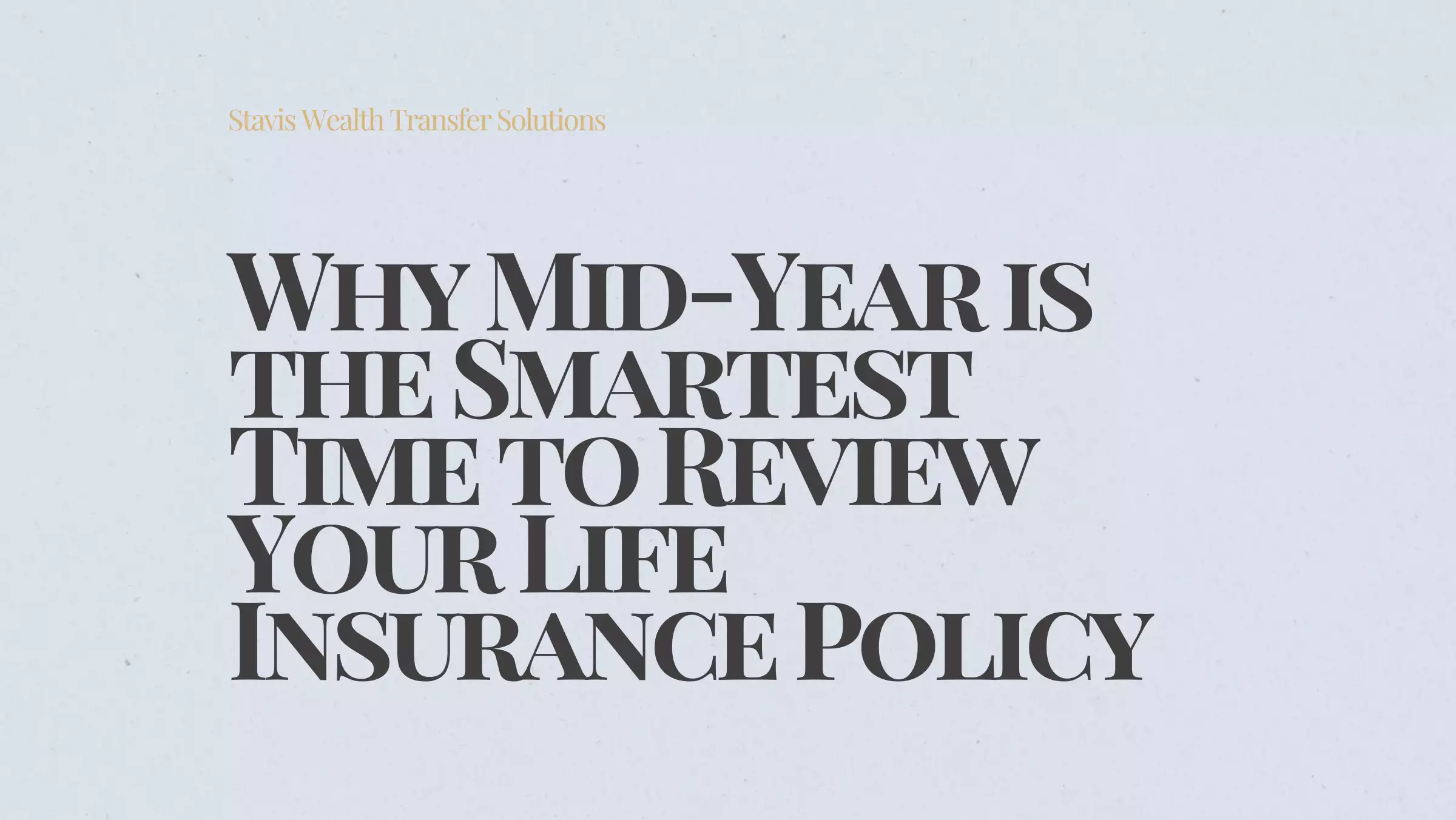Why Mid-Year is the Smartest Time to Review Your Life Insurance Policy
21st July 2025

When it comes to financial planning, most people wait until the end of the year to take stock of where they are at or set well-meaning resolutions in January that rarely stick. But when it comes to your life insurance policy, waiting might cost you more than just time.
A mid-year policy review with a fully-licensed, practicing life insurance professional offers a proactive, strategic advantage. It's a moment when you're far enough from the chaos of year-end deadlines and holiday distractions to focus on what really matters: making sure your life insurance still fits your life.
Life Moves Fast. Your Policy Should Keep Up.
The policy you took out five, ten, or even twenty years ago may no longer reflect your current goals or obligations. Major life changes, such as marriage, children, divorce, buying a home, starting or selling a business, can radically alter the type and amount of protection you need. A mid-year review helps you catch these shifts before another calendar year goes by.
Here are a few questions worth asking during your review:
- Do your beneficiaries still reflect your wishes?
- Has your income, debt load, or net worth changed significantly?
- Has your health improved (or worsened), potentially affecting your options?
- Are you using the policy for a different purpose now, like business planning or charitable giving?
Even something as simple as a change in your mailing address or bank account could lead to administrative issues or a lapsed policy if left unchecked.
Market & Policy Changes Also Matter
Life insurance isn’t static. Carriers update products and pricing regularly. If your policy is older, you may be able to lock in better performance or lower costs with a newer policy design. Similarly, if you're holding a policy with cash value (like whole life, universal life, or variable life), the performance of that policy may be closely tied to interest rates or market returns.
Mid-year is a great time to check in on:
- Policy crediting rates
- Cash value/subaccount performance
- Policy loan balances and interest accrual
- Term conversion deadlines
Sometimes, a review simply confirms that your policy is doing exactly what it should. But sometimes, it reveals missed opportunities, like the ability to add a long-term care rider, reduce premiums, or consolidate policies for more efficient coverage.
Why Mid-Year? Timing Is Everything
Summer is a natural pause point for many professionals and business owners. You’re not yet buried in Q4 decisions or tax deadlines, and the slower pace can lend itself to thoughtful review. Plus, if adjustments need to be made, mid-year gives you the runway to:
- Underwrite and issue a new policy
- Update estate planning documents
- Coordinate with your CPA or financial planner before year-end
A July or August policy review also means you're not competing with the rush of December deadlines when financial professionals, underwriters, and advisors are stretched thin.
More Than Just Insurance, It’s Peace of Mind
A life insurance review isn’t just about numbers on a page. It’s about knowing your plan still works if the unexpected happens tomorrow. For families, it means knowing your children will be cared for. For business owners, it could mean knowing your buy-sell plan is adequately funded. And for retirees, it could be the difference between a tax-free wealth transfer and a taxable estate headache.
You don’t need a crisis or a calendar flip to justify a review. You just need a quiet moment in the middle of the year and the right partner to help walk you through it.
Final Thoughts
Life insurance is a cornerstone of any smart, holistic financial plan. But like any good plan, it deserves regular attention and adjustment. A mid-year review can ensure your coverage keeps pace with your goals and help you avoid surprises down the line.